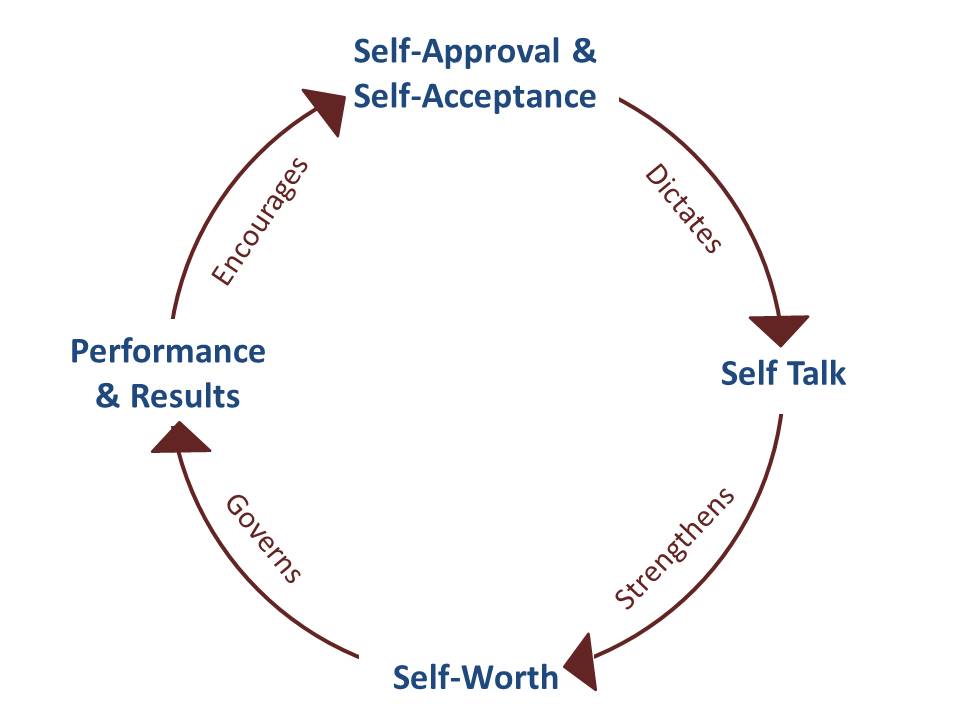We all talk to ourselves; it is perfectly normal. It is called self-talk. It can be positive or negative and it is a cycle. Every time we have a conversation with ourselves, we are reinforcing who we are and what we are capable of doing. We are building up or destroying our self-esteem and self-worth. If we have positive self-talk than we usually have a high sense of self-worth and self-esteem, we think big. We have bigger dreams and have a better chance at achieving those dreams. If we have negative self-talk (which goes by many names Automatic Negative Thinking, Negative Automatic Thoughts, Gremlins, Automatic Thoughts and Unhealthy Thinking), then we are filled with self-doubt and criticisms about who we are and what we are capable of doing. We are creating our own reality. It’s a cycle.
When you think negatively about yourself, it limits your motivation, focus, and ability to start tasks and complete tasks. You are saying to yourself, “Why bother, I never get it right” instead of “Here is an opportunity to learn how to get this right.” When something goes wrong instead of beating yourself up (most likely, repeatedly), think what could I change to make that go the way I want it to and then visualize yourself doing it the way you want repeatedly.
It can be hard to turn this negative self-talk into positive self-talk. I have a client who automatically says something negative when given a compliment. We have recently put a “rule” in place that she can only say, “Thank you!” I give her several compliments while working with her to give her a chance to practice.

Here are some other tips to quite the Gremlins:
- Try distancing yourself by giving the negative situation/issue a name and treating it like a third party, whose advice you don’t want.
- Try distracting yourself with something else preferable something that requires you to focus like a puzzle.
- Try naming the feeling (disappointed, frustrated, scared). Calling it out for what it is will give it less power. Then question it; “Really, do I alway fail at X?” Absolute terms are rarely true.
- Try seeing the silver lining. Reframe the negative into a positive. For example; you’re not impulsive; you’re spontaneous.
- Try calling someone to rant to. Keeping the feelings hidden gives them power too. A friend can often help us see the humor in a situation.
When we are wrapped up in negative self-talk, self-doubt, and self-criticisms, we aren’t motivated to do anything. It interferes with making decisions, tasks, focused attention and so much more.
